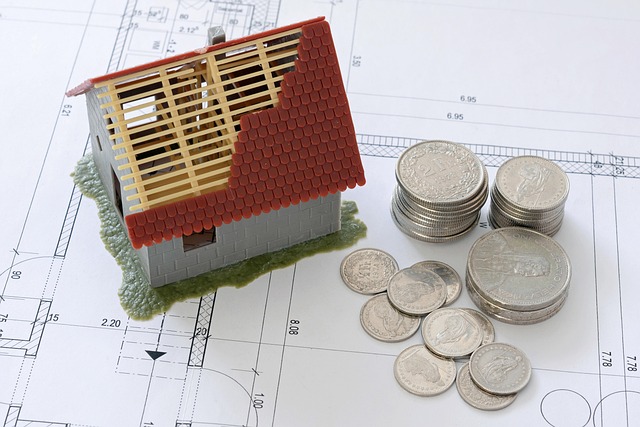Many contractors face capital constraints limiting their project scope and business growth. Home improvement financing offers specialized solutions, providing flexible funding for materials, labor, equipment, and overheads. This enables contractors to bid on more projects, expand, and increase revenue. To secure financing, contractors must meet strict eligibility criteria, including a robust financial history and proven track record. Options range from traditional bank loans to alternative methods like P2P lending and home improvement credit cards. The process involves gathering documentation, completing applications, and collateral/insurance considerations. This financing is a powerful tool for contractors to fund larger projects and acquire specialized equipment, but careful research and understanding of various types and lender requirements are crucial.
Looking to fund your next home improvement project? As a contractor, understanding your financing options is key. This guide explores home improvement loans tailored specifically for contractors like you. From understanding the eligibility criteria and available financing types to navigating the application process and unlocking benefits, we’ll walk you through securing the perfect loan for your business. Discover how home improvement financing can revolutionize your projects and boost your bottom line.
- Understanding Home Improvement Loans for Contractors
- Eligibility Criteria for Contractor Loans
- Types of Financing Options Available
- Application Process and Required Documents
- Benefits and Considerations for Contractors
Understanding Home Improvement Loans for Contractors

Many contractors often need a boost in capital to take on larger projects or to fund their business operations. This is where home improvement financing for contractors comes into play. These specialized loans are designed to cater to the unique needs of contractors, providing them with flexible funding options to pursue their ventures. With these loans, contractors can access funds to cover a range of expenses, from purchasing materials and equipment to covering labor costs and even administrative overheads.
Understanding home improvement financing allows contractors to make informed decisions about their financial strategies. These loans often come with adjustable interest rates and repayment terms tailored to the project timeline, ensuring that contractors can manage their cash flow effectively. This accessible financing for contractors is a game-changer, enabling them to bid on more projects, expand their business, and ultimately, grow their revenue streams.
Eligibility Criteria for Contractor Loans

When considering loans for contractors, understanding the eligibility criteria is essential for securing home improvement financing. Lenders often require contractors to meet specific standards to assess their creditworthiness. These criteria typically include having a valid business license and providing proof of insurance, especially worker’s compensation coverage, which is crucial for mitigating risks associated with construction projects.
In addition, lenders will evaluate the contractor’s financial history and stability. This involves verifying income, often through tax returns or bank statements, to ensure they can comfortably repay the loan. The lender may also consider factors like the length of time in business, client references, and a solid track record of completed projects, demonstrating their reliability in delivering quality work and adhering to financial obligations.
Types of Financing Options Available

When it comes to funding their projects, contractors have a variety of options to consider, especially in the realm of home improvement financing for contractors. Traditional bank loans remain a popular choice, offering competitive interest rates and flexible repayment terms. These loans are ideal for larger-scale projects that require substantial capital upfront. Many banks also provide specialized lending programs tailored to the unique needs of contractors, ensuring they have the financial backing needed to complete jobs efficiently.
Alternative financing options have gained traction in recent years, catering to the evolving demands of the industry. Peer-to-peer (P2P) lending platforms and online lenders offer speed and convenience, enabling contractors to access funds quickly for smaller-scale or emergency projects. Moreover, home improvement credit cards provide a line of credit, allowing contractors to make purchases and pay back over time. This option is suitable for those who prefer the flexibility of paying as they go, although it may come with higher interest rates compared to traditional loans.
Application Process and Required Documents

The application process for home improvement financing for contractors typically involves several key steps. First, contractors need to gather all necessary documents, such as business registration papers, tax returns, and bank statements. These documents are essential to verify the contractor’s financial stability and business legitimacy. Next, they must complete an application form provided by the lending institution, detailing their project scope, budget, and expected completion timeline. The lender will review these materials to assess creditworthiness and determine loan eligibility.
Along with the application, contractors may be required to present collateral or offer specific types of insurance as part of the home improvement financing for contractors process. This ensures both the borrower’s commitment to the project and protects the lender against potential risks. Once all documents are in order, the contractor can submit their application, after which the lender will conduct a thorough evaluation before making a decision on the loan approval.
Benefits and Considerations for Contractors

For contractors, accessing suitable home improvement financing is a game-changer that can transform their business prospects. Loans tailored for this industry offer numerous advantages, including flexible terms and interest rates designed to cater to the unique financial needs of self-employed professionals. With these funds, contractors can embark on larger-scale projects, invest in specialized equipment, or upgrade their work sites, thereby enhancing their capacity to take on more diverse and lucrative assignments.
However, as with any financing option, there are considerations to keep in mind. Contractors should thoroughly research various loan types, comparing interest rates, repayment periods, and requirements set by different lenders. Understanding the terms is crucial, especially regarding potential hidden fees or penalties. Additionally, maintaining meticulous records of expenses and revenues will facilitate accurate financial reporting and help contractors stay compliant with tax obligations associated with business loans.
Home improvement loans for contractors offer a valuable source of financing, enabling professionals to access capital for projects. By understanding the eligibility criteria, exploring various financing types, and navigating the application process with the necessary documents, contractors can unlock benefits that support their growth and success in the industry. These loans provide flexibility and funding opportunities, making them an essential tool for those looking to thrive in the competitive world of home improvement financing.
